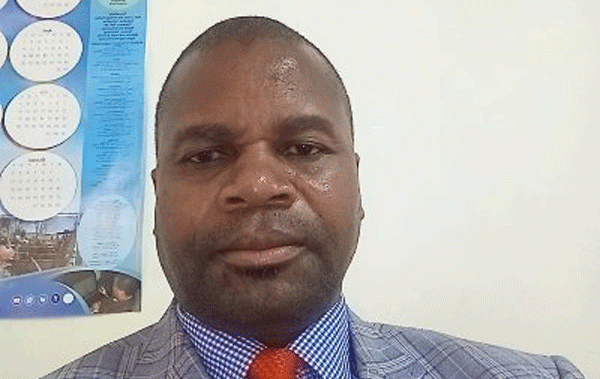
By Peter Makwanya THE dominant narrative of the African urban informal settlements paints an unbearable picture of ecological systems that are increasingly undergoing enormous degradation. These are linked to human-induced processes with adverse implications on local and regional populations whose livelihoods are largely dependent on the environment and natural resources.
These also contribute to rapid environmental and economic changes posing dangers to ecosystems and economic systems globally. This has contributed to extinction of ecological species, droughts, pollutions and agricultural challenges, among others. While landscape diversity and ecosystems resilience are key, and a sustainable tool for natural resources management, it should be noted that the complex nature of ecological planning take into account even the smallest organism.
Increasing climate variability and rapid human-induced settlements changes jeopardise sustainable development and undermine Africa’s Agenda 2030 development trajectory, the Africa We Want and the African Union Agenda of 2063.
Driven by these sustainable and instrumental tenets, landscape ecology becomes key in providing a framework for sustainable land use planning and natural resources management that would make urban communities more habitable.
Landscape ecology provides an inclusive and interdisciplinary view and interactions between environmental sciences, social sciences, social anthropology, scientific and architectural, tongue a few. The aim is to sufficiently harness the role of biodiversity for a sustainable livelihood and promote adequate governance systems and instruments to achieve the sustainable development goals (SDGs).
In the overall framework, landscape ecology provides knowledge and skills to improve on the status of achieving the SDGs and AU Agenda 2063.
Building on these insights, diversity at landscape level becomes instrumental in promoting resilient livelihoods as a means of improving the health and functioning of socio-ecological systems as well as mechanisms for achieving equity planning and food security.
Furthermore, the Africa We Want is geared towards sustainable urbanisation, that is addressing urbanisation and its problems in Africa, focussing on the drivers of change, related pressures or stressors, the impacts and responses needed.
- Chamisa under fire over US$120K donation
- Mavhunga puts DeMbare into Chibuku quarterfinals
- Pension funds bet on Cabora Bassa oilfields
- Councils defy govt fire tender directive
Keep Reading
One thing for sure is that the environment cannot be improved in conditions of poverty hence actions pointing towards poverty reduction and sustainable development are key. These are the 17 SDGs and their 130 targets which should be mainstreamed with the Sendai Framework, 40 targets and how landscape ecology applies to the local level.
There is also the need to integrate and use landscape ecological frameworks and situate them to our local urban areas. This is necessary as human interventions are an essential component for healthy ecosystems. That is to say, as urban areas are planned and developed, the ecological interactions and green urban spaces should not be disrupted.
This is because species from one ecosystems’ functional group may temporarily support a functional group in another ecosystem, thereby helping to maintain ecological stability.
Then come humans with their expansionist theories and tendencies, causing massive land degradations, land pollutions, emissions and deforestations making the environment inhabitable. While in each and every plan of action by any municipality, the issues of culture are articulated but surprisingly never implemented. This is important in the sense that, cultural and natural values of landscapes are closely interlinked hence they should never be ignored.
Landscape ecology, as a new paradigm is here to regulate and transform urban planning, minimise or manage sprouting informal urban settlements that have become an eyesore in many African countries. While the root causes of problems of resource management often not context specific, but the drivers and stressors may share similarities.
Failure to manage or respond to community challenges, lack of procedural and inclusive spatial planning, failure to manage ecosystems services, including duplication of roles and duties may retard sustainable planning growth. Due to the fact that sustainable landscape ecology should have a multidisciplinary perspective, spatial patterns and processes should be witnessed across scales.
There should be a clear distinction between “built” and “natural” environments for sustainable and reciprocal living to take place.
Sustainable landscape ecology promotes resilience. Resilience is viewed as an ability to adapt, bounce back and get cushioned from the impact and hazards such as flooding, earthquakes, droughts, loss and physical and physiological damage, among others. When the city is impacted by these natural and human made disasters, it is within the best interest of landscape ecology to enable inhabitants to bounce back and realise resilience.
The culture and problems of informal urban settlements contributing to other vices such as pollution and emissions need to be explored, interrogated and managed at the planning stage.
Failure to be inclusive and sustainable in the urban planning processes will give birth to these problems of informal urban settlements where there is less conformity and regularisations, lack of rule of law, human rights’ abuses and crime, among others.
- Peter Makwanya is a climate change communicator. He writes in his personal capacity and can be contacted on: [email protected]











